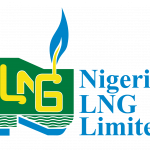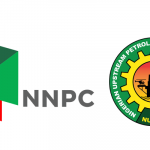Technology
The Rise of Web3 Developers: Why This Career Path is the Future of Tech

As technology advances, the internet is undergoing a revolutionary shift toward decentralization. Known as Web3, this next phase of the internet is redefining how we interact with digital systems by emphasizing transparency, user ownership, and autonomy.
At the heart of this evolution are Web3 developers—professionals whose expertise in blockchain and decentralized systems is driving innovation and creating exciting new opportunities. Pursuing a Web3 career is not just about adapting to industry trends; it’s about shaping the future of technology. In this article, we’ll explore why Web3 developers are in high demand and how you can step into this promising field.
What is Web3?
Web3 represents the decentralized evolution of the internet. Unlike its predecessor, Web2, where centralized platforms dominate, Web3 leverages blockchain technology to create an ecosystem that is transparent, secure, and community-driven.
Some of the defining features of Web3 include:
- Decentralization: Control is distributed among users rather than being concentrated in a single organization.
- Transparency: Blockchain technology ensures that all transactions and operations are open and verifiable.
- Automation: Smart contracts allow for self-executing agreements, reducing the need for intermediaries.
This paradigm shift has unlocked immense opportunities, particularly for developers who can create, manage, and enhance Web3 applications.
Why a Web3 Career is the Future
- Rapid Growth in Blockchain Technology
Blockchain is no longer just about digital currencies; its applications have expanded to include finance, healthcare, logistics, and gaming, among others.
This rapid adoption is driving an unprecedented demand for Web3 developers to build decentralized applications (dApps) and integrate blockchain solutions across various sectors.
- High Demand and Competitive Compensation
The demand for Web3 talent has outpaced supply, making it one of the most lucrative fields in tech. Web3 developers often earn significantly more than traditional developers due to their specialized skills.
Many roles offer remote and flexible working arrangements, enabling global opportunities.
- Opportunities for Innovation
Web3 is still in its infancy, making it a playground for innovators. From creating decentralized finance systems to building virtual economies in the metaverse, developers have the chance to work on groundbreaking projects that redefine industries.
Key Skills for a Successful Web3 Career
To excel as a Web3 developer, mastering certain skills is essential:
- Programming Knowledge: Proficiency in languages like Solidity, Rust, or Go, commonly used in smart contract and blockchain development.
- Blockchain Fundamentals: A deep understanding of how decentralized networks function and their architecture.
- Smart Contracts: The ability to design and implement self-executing contracts.
- Cryptography: Knowledge of encryption techniques to ensure security in applications.
Soft skills such as adaptability and problem-solving are equally important, given the fast-paced nature of the industry.
Benefits of Pursuing a Web3 Career
A career in Web3 comes with a range of unique advantages:
- Global Reach: The decentralized nature of Web3 opens doors to international opportunities without geographical limitations.
- Future-Ready Skills: Web3 expertise is increasingly sought after, offering a secure and sustainable career path.
- Collaborative Ecosystem: Unlike traditional tech environments, Web3 thrives on open collaboration and community-driven development.
- Freedom to Innovate: Developers have the flexibility to experiment and contribute to transformative projects.
Steps to Start Your Web3 Journey
Breaking into a Web3 career may seem challenging, but with a focused approach, it’s entirely achievable. Here’s how to get started:
Understand the Basics
- Learn the core concepts of blockchain technology, decentralized systems, and smart contracts.
- Explore educational resources, tutorials, and online communities for foundational knowledge.
Develop Technical Skills
- Master programming languages and frameworks commonly used in blockchain development.
- Familiarize yourself with Web3-specific tools and libraries to streamline your workflow.
Build Projects
- Start small by creating basic decentralized applications or experimenting with smart contracts.
- Showcase your work in a portfolio to demonstrate your capabilities for a potential employer.
Engage with the Community
- Join forums, developer meetups, and hackathons to network with others in the field.
- Stay updated on industry trends by following Web3-focused discussions and publications.
Continue Learning
- The Web3 space is constantly evolving, so staying up-to-date with advancements is crucial.
- Seek out certifications or courses to deepen your expertise and credibility.
Challenges and Future Outlook
While the opportunities in Web3 are immense, they come with challenges. The fast-evolving technology requires developers to continually upskill. Additionally, the regulatory landscape for blockchain and decentralized systems is still developing, which may introduce uncertainties. A Web3 career offers more than just a job—it provides a chance to shape the next wave of technological innovation. As industries embrace decentralization, the demand for Web3 developers will only grow. Whether you’re a seasoned tech professional or someone looking to enter the field, now is the perfect time to explore this exciting career path. By stepping into the world of Web3, you’re not just advancing your skills—you’re becoming part of a movement that’s redefining how we connect, transact, and collaborate online. The future of technology is here, and it’s decentralized. Will you be part of it?
Technology
Leticia Otomewo Becomes Secure Electronic Technology’s Acting Secretary

By Aduragbemi Omiyale
One of the players in the Nigerian gaming industry, Secure Electronic Technology (SET) Plc, has appointed Ms Leticia Otomewo as its acting secretary.
This followed the expiration of the company’s service contract with the former occupier of the seat, Ms Irene Attoe, on January 31, 2026.
A statement to the Nigerian Exchange (NGX) Limited on Thursday said Ms Otomewo would remain the organisation’s scribe in an acting capacity, pending the ratification and appointment of a substantive company secretary at the next board meeting.
She was described in the notice signed by the Managing Director of the firm, Mr Oyeyemi Olusoji, as “a results-driven executive with 22 years of experience in driving business growth, leading high-performing teams, and delivering innovative solutions.”
The acting secretary is also said to be “a collaborative leader with a passion for mentoring and developing talent.”
“The company assures the investing public that all Company Secretariat responsibilities and regulatory obligations will continue to be discharged in full compliance with the Companies and Allied Matters Act, applicable regulations, and the Nigerian Exchange Limited Listing Rules,” the disclosure assured.
Meanwhile, the board thanked Ms Attoe “for professionalism and contributions to the Company during the period of her engagement and wishes her well in her future endeavours.”
Technology
Russia Blocks WhatsApp Messaging Service

By Adedapo Adesanya
The Russian government on Thursday confirmed it has blocked the WhatsApp messaging service, as it moves to further control information flow in the country.
It urged Russians to use a new state-backed platform called Max instead of the Meta-owned service.
WhatsApp issued a statement earlier saying Russia had attempted to “fully block” its messaging service in the country to force people toward Max, which it described as a “surveillance app.”
“Today the Russian government attempted to fully block WhatsApp in an effort to drive people to a state-owned surveillance app,” WhatsApp posted on social media platform X.
“Trying to isolate over 100 million users from private and secure communication is a backwards step and can only lead to less safety for people in Russia,” it said, adding: “We continue to do everything we can to keep users connected.”
Russia’s latest move against social media platforms and messaging services like WhatsApp, Signal and Telegram comes amid a wider attempt to drive users toward domestic and more easily controlled and monitored services, such as Max.
Russia’s telecoms watchdog, Roskomnadzor, has accused messaging apps Telegram and WhatsApp of failing to comply with Russian legislation requiring companies to store Russian users’ data inside the country, and of failing to introduce measures to stop their platforms from being used for allegedly criminal or terrorist purposes.
It has used this as a basis for slowing down or blocking their operations, with restrictions coming into force since last year.
For Telegram, it may be next, but so far the Russian government has been admittedly slowing down its operations “due to the fact that the company isn’t complying with the requirements of Russian legislation.”
The chat service, founded by Russian developers but headquartered in Dubai, has been a principal target for Roskomnadzor’s scrutiny and increasing restrictions, with users reporting sluggish performance on the app since January.
Technology
Nigerian AI Startup Decide Ranks Fourth Globally for Spreadsheet Accuracy

By Adedapo Adesanya
Nigerian startup, Decide, has emerged as the fourth most accurate Artificial Intelligence (AI) agent for spreadsheet tasks globally, according to results from SpreadsheetBench, a widely referenced benchmark for evaluating AI performance on real-world spreadsheet problems.
According to the founder, Mr Abiodun Adetona, the ranking places Decide alongside well-funded global AI startups, including Microsoft, OpenAI, and Anthropic.
Mr Adetona, an ex-Flutterwave developer, also revealed that Decide now has over 3,000 users, including some who are paying customers, a signal to the ability of the startup to scale in the near future.
SpreadsheetBench is a comprehensive evaluation framework designed to push Large Language Models (LLMs) to their limits in understanding and manipulating spreadsheet data. While many benchmarks focus on simple table QA, SpreadsheetBench treats a spreadsheet as a complex ecosystem involving spatial layouts, formulas, and multi-step reasoning. So far, only three agents rank higher than Decide, namely Nobie Agent, Shortcut.ai, and Qingqiu Agent.
Mr Adetona said SpreadsheetBench measures how well AI agents can handle practical spreadsheet tasks such as writing formulas, cleaning messy data, working across multiple sheets, and reasoning through complex Excel workflows. Decide recorded an 82.5% accuracy score, solving 330 out of 400 verified tasks.
“The result reflects sustained investment in applied research, product iteration, and learning from real-world spreadsheet workloads across a wide range of use cases,” Mr Adetona told Business Post.
For Mr Adetona, who built Decide out of frustration with how much time professionals spend manually cleaning data, debugging formulas, and moving between sheets, “This milestone highlights how focused engineering and domain-specific AI development can deliver frontier-level performance outside of large research organisations. By concentrating on practical business data problems and building systems grounded in real user environments, we believe smaller teams can contribute meaningfully to advancing applied AI.”
“For Decide, this is a foundation for continued progress in intelligent spreadsheet and analytics automation,” he added.
-

 Feature/OPED6 years ago
Feature/OPED6 years agoDavos was Different this year
-
Travel/Tourism10 years ago
Lagos Seals Western Lodge Hotel In Ikorodu
-

 Showbiz3 years ago
Showbiz3 years agoEstranged Lover Releases Videos of Empress Njamah Bathing
-

 Banking8 years ago
Banking8 years agoSort Codes of GTBank Branches in Nigeria
-

 Economy3 years ago
Economy3 years agoSubsidy Removal: CNG at N130 Per Litre Cheaper Than Petrol—IPMAN
-

 Banking3 years ago
Banking3 years agoSort Codes of UBA Branches in Nigeria
-

 Banking3 years ago
Banking3 years agoFirst Bank Announces Planned Downtime
-

 Sports3 years ago
Sports3 years agoHighest Paid Nigerian Footballer – How Much Do Nigerian Footballers Earn






















